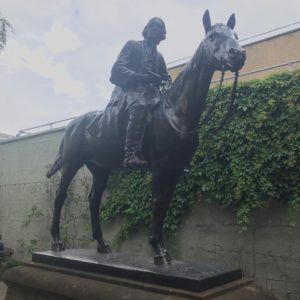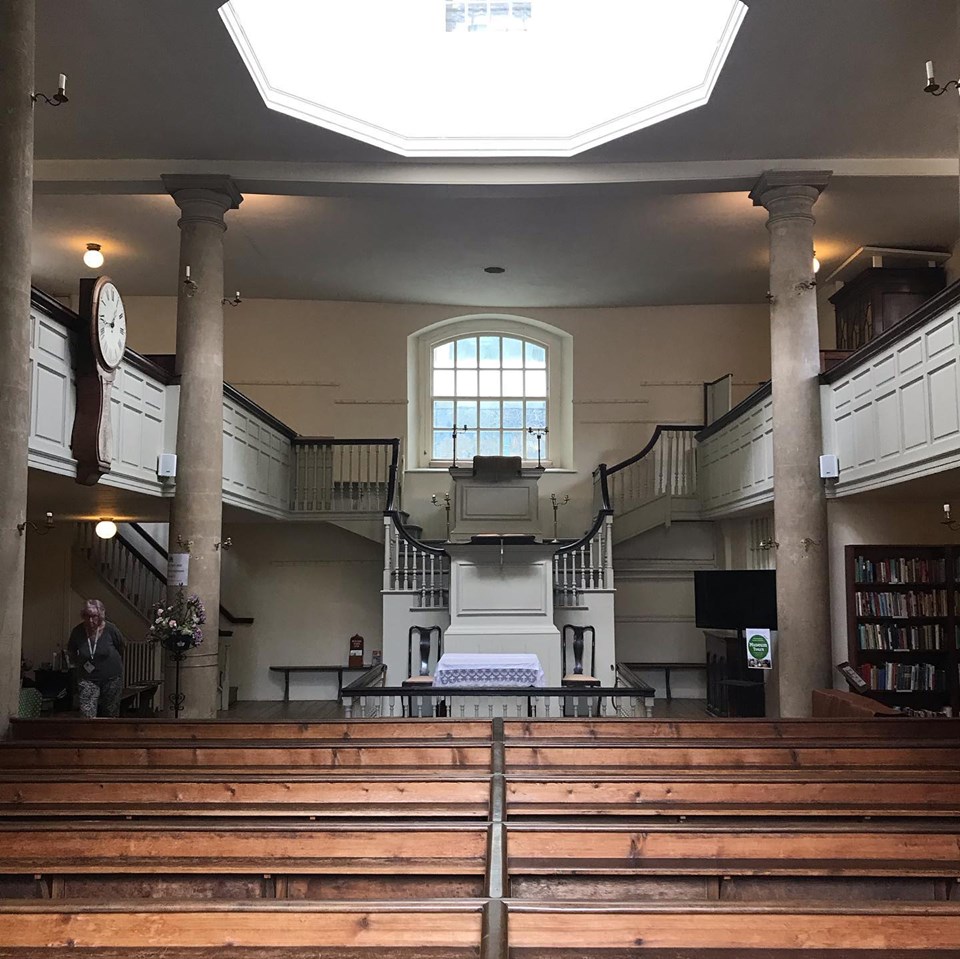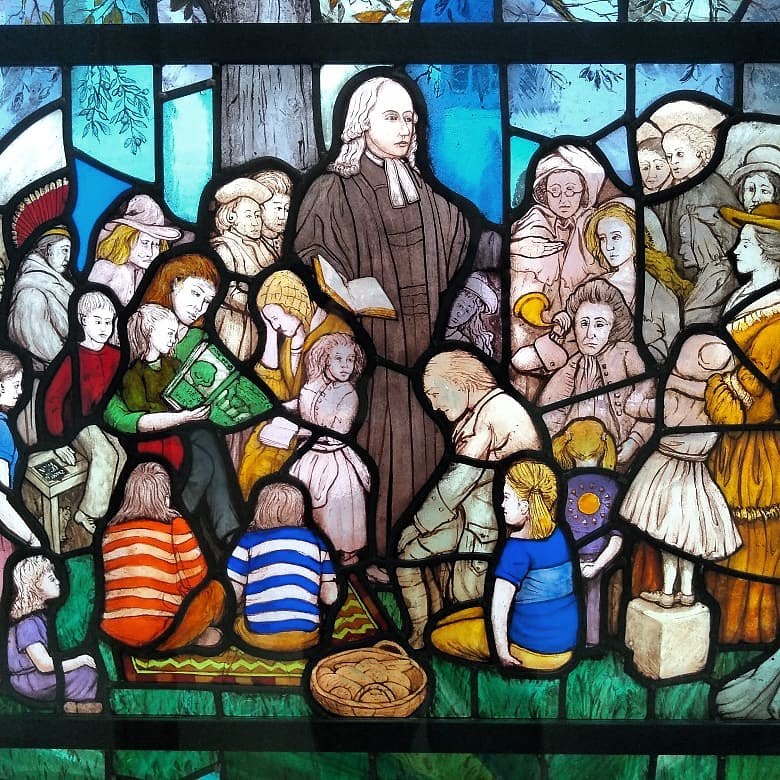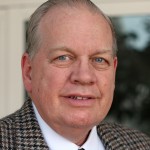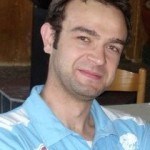Wild Fire Inferno over Bulgaria
DO NOT COPY THE FIRE!

By Kathryn Donev
If I were to ask you if it would be okay for your child to hang out with a friend that actively practices witchcraft, I’m certain you would be appalled by the question and your very quick response would be a sharp, “No”. But when encompassed in a kid friendly fantasy world, a young boy named Harry who studies at a school of wizardry and possesses a simple stick that shoots cool fireballs seems harmless.
I’m reminded of a story in Leviticus in which two boys thought it would be okay to play with strange fire.
It’s a very simple story. Arron’s sons, Nadab and Abihu, who were priests of the wilderness tabernacle took their censers and put unauthorized fire in them. They then were instantly consumed by the Fire that came from the presence of the Lord and died. The Potter’s fire, the true fire, the authorized, familiar fire consumed everything. This is a lesson that teaches that we are not to let our children play with strange fire. A potter’s fire that seems so innocent, could cost your children their life.
It is our responsibility as parents to teach our children that we are not to play with cool looking fire even though it’s only “make-believe”. Witchcraft is real. It is dangerous. It is confusing and The Potter is not a God of confusion. We must protect our children from being consumed.
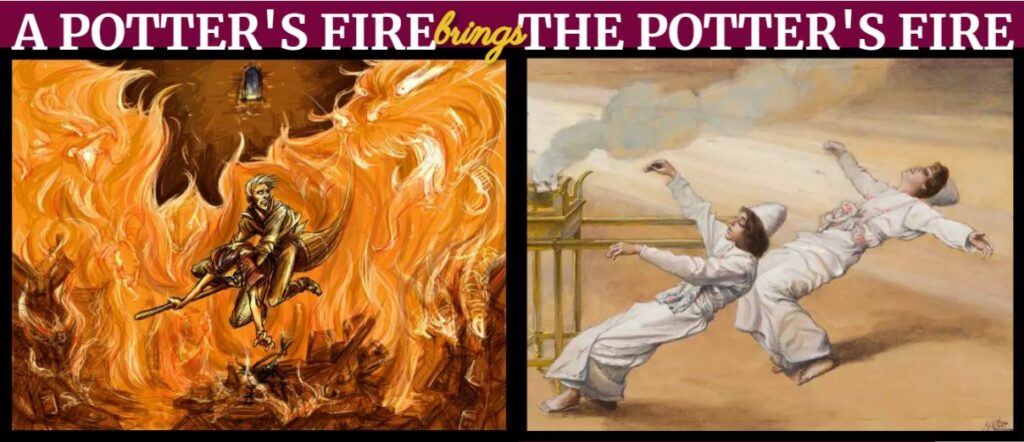
A Potter’s Fire brings The Potter’s Fire
By Kathryn Donev
If I were to ask you if it would be okay for your child to hang out with a friend that actively practices witchcraft, I’m certain you would be appalled by the question and your very quick response would be a sharp, “No”. But when encompassed in a kid friendly fantasy world, a young boy named Harry who studies at a school of wizardry and possesses a simple stick that shoots cool fireballs seems harmless.
I’m reminded of a story in Leviticus in which two boys thought it would be okay to play with strange fire.
It’s a very simple story. Arron’s sons, Nadab and Abihu, who were priests of the wilderness tabernacle took their censers and put unauthorized fire in them. They then were instantly consumed by the Fire that came from the presence of the Lord and died. The Potter’s fire, the true fire, the authorized, familiar fire consumed everything. This is a lesson that teaches that we are not to let our children play with strange fire. A potter’s fire that seems so innocent, could cost your children their life.
It is our responsibility as parents to teach our children that we are not to play with cool looking fire even though it’s only “make-believe”. Witchcraft is real. It is dangerous. It is confusing and The Potter is not a God of confusion. We must protect our children from being consumed.

Set yourself on fire…
New Wesley Room at Bristol
Here is a bit more about the building from the Methodist Heritage Organization:
George Whitefield invited John Wesley to preach outdoors for the first time to the miners of Bristol in 1739. Within a few weeks’ work started on building the New Room as a meeting place for two of the religious societies in the city, thus creating the world’s first Methodist building.
The current building dates from 1748 when the New Room was doubled in size. Its lower floor became known as John Wesley’s Chapel. It is still in regular use for worship as well as being used for cultural and educational activities and exhibitions. Upstairs John Wesley created twelve rooms around a beautiful central octagonal window. These provided accommodation for himself and any visiting preachers assigned to the Bristol circuit. They now contain a highly interactive Museum devoted to telling the story of John and Charles Wesley and the relevance of their work today.
Being well placed in the heart of the city, the New Room became a center for the Wesleys’ work in Bristol. It was where John’s strong sense of social justice was first expressed. The New Room became a base for running a school for the poor, for providing food and clothes to the needy, for offering free medical care to the sick, and for helping those in the nearby prison. It was also the first place to use John Wesley’s ‘class’ system, where members were divided into sub-groups for mutual support and development. The New Room has been described as ‘the cradle of Methodism’.
The New Room was one of John Wesley’s three key centers. Many of the annual conferences were held there, including the one that first created Methodist circuits. Bristol’s trading links encouraged the growth of American Methodism. Thomas Webb, Francis Asbury, and others committed themselves to working there and sailed from nearby.
Encouraged by the Diary of JOHN WESLEY
O HOLY GOD we, have come to a point where
pastors text and post on facebook during sermon hour while thousands are going to hell in a hand basket while listening to a sermon
teachers be sipping a beer with friends on Saturday night and get up to teach Sunday school on Sunday morning still with alcohol on their breath
seminary professors teaching it is OK to drink in the Bible during the so called Theology on Tap meetings in a local pub
lonely pastors sitting in their cars shooting whiskey in the darkness of the church parking lot after preaching 2-3 services on Sunday
preachers are concerned with every social, political and cultural issues except the salvation of eternal human souls
We read the story in Wesley’s journal:
Sunday, 7.-–I preached again at St. Lawrence’s in the morning, and afterward at St. Katherine Cree’s Church. I was enabled to speak strong words at both; and was therefore the less surprised at being informed that I was not to preach any more in either of those churches.
The following weekend – Sunday, 14.–I preached in the morning at St. Ann’s, Aldersgate; and in the afternoon at the Savoy Chapel on free salvation by faith in the blood of Christ.
I was quickly apprised that at St. Ann’s, likewise, I am to preach no more.
I preached at St. John’s, Wapping at 3PM and at St. Bennett’s, Paul’s Wharf, in the evening.
At these churches, likewise, I am to preach no more
THEN HE WRITES:
Monday, Tuesday, and Wednesday, I had continual sorrow and heaviness in my heart.
BUT THEN Wednesday, May 24.– about five this morning that I opened my Testament on those words
“There are given unto us exceeding great and precious promises, even that ye should be partakers of the divine nature” [II Peter 1:4].
Just as I went out, I opened it again on
those words, “Thou art not far from the kingdom of God” [Mark 12:34].
In the afternoon I was asked to go to St. Paul’s. The anthem was, “Out
of the deep have I called unto Thee, O Lord: Lord, hear my voice. Oh,
let Thine ears consider well the voice of my complaint
“I Felt My Heart Strangely Warmed”
In the evening I went very unwillingly to a society in Aldersgate Street where one was reading Luther’s preface to the Epistle to the Romans. About a quarter before nine, while he was describing the change
which God works in the heart through faith in Christ, I felt my heart strangely warmed.
I felt I did trust in Christ, Christ alone, for salvation; and an assurance was given me that He had taken away my sins, even mine, and saved me from the law of sin and death.
I began to pray with all my might for those who had in a more especial
manner despitefully used me and persecuted me.
I then testified openly to all there what I now first felt in my heart
Banned from most churches in the area, he meets with Whitfield who has just returned from America
Whitfield tells him they can minister in the fields like they did in America
Thursday, 29th –-I left London as I could scarcely reconcile myself at first to this strange way of preaching in the fields, of which Whitfield set me an example on Sunday;
I had been all my life (till very lately) so tenacious of every point relating to decency and order
that I should have thought the saving of souls almost a sin if it had not been done in a church.
Monday, 2.--At four in the afternoon, I submitted to be more vile and proclaimed in the highways the glad tidings of salvation, speaking from a little eminence in a ground adjoining to the city where gathered 3,000 people
Sunday, 8.--At seven in the morning I preached to about a thousand persons at Bristol, and afterward to about fifteen hundred on the top of the Mount in Kingswood.
Tuesday, 17.–At 5 in the afternoon I was at a little society in the Back Lane. The room in which we were was propped beneath, but the weight of people made the floor give way; so in the very beginning of PREACHING the post which propped it fell down with a great noise.
NEVERTHELESS the floor sank no farther; so that, after a little surprise at first, they quietly attended to the words that were spoken.”
“Strange Fire” in 2018?
A Biblical and experiential panel response to John MacArthur’s “Strange Fire” from an international Pentecostal point of view Strange Fire
Dony K. Donev with Dennis Balcombe, Hanny Setiawan and Marius Lombaard
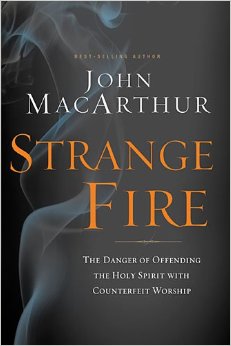
John MacArthur, Strange Fire: The Danger of Offending the Holy Spirit with Counterfeit Worship (Nelson Books, 2013).
Almost one year ago, internationally known author John MacArthur began campaigning for his new book Strange Fire. With lots of material written beforehand by many who had not even read the book, the actual premiere was at a conference with the same name, not without some scandal to help its wide popularization. But scandal was hardly needed when the book classified most (if not all) Charismatics around the world as heretics. Тhe bottom line for MacArthur’s work was deconstruction modern day Charismatic theology and exposing it as unbiblical.
Do Pentecostal churches really offer a “strange fire” as MacArthur proposes? Could charismatic extremes practiced by some be evident in all Charismatic churches and classical Pentecostal denominations? And is it possible to declare a world wide movement of half a billion strong as heretical by observing random examples among less than 3% (three percent) of its representatives residing in North America?
The premise of this ad hominem attack is surprising, when even in Pentecostal scholarly circles we have long debated some Charismatic praxis as wrong and destructive to the movement as a whole. So, when an outsider to Pentecostalism as MacArthur jumps in and claims all Pentecostals are bad because some Charismatics have been found in the wrong, the normal response is simply to disagree. Especially when these extremes do not concern Pentecostalism globally, but as MacArthur himself admits, are defined to a North American context of ministry and even more strict and limited Charismatic circle of neo-Pentecostalism.
The purpose of this article, therefore, is to present the view of Classic Pentecostals, as deferred from the variety non-Pentecostal Charismatics. And to discuss MacArthur’s assumptions in an international Pentecostal context, though Strange Fire refuses to view Pentecostalism as the global power it has become. Perhaps, the very weakness of any theological work that seeks international recognition, but fortifies its argument only within the perimeter of westernized theology. To provoke an even deeper discussion, the study explores five of the major arguments of Strange Fire within the ministry context of Pentecostals from Eastern Europe, Africa and Asia.
Apostolic Relevance or a New Apostolic Reformation?
Admittedly, MacArthur strongest point within his attack on Pentecostals is outlining Peter Wagner’s New Apostolic Reformation movement. And even quoting Vinson Synan, who was invited to join the network for $69 a month, but declined with the response, “I could not afford to be an apostle.” But how concerned is the larger Pentecostal world about this apostolic movement? And how important is NAR in global Pentecostalism today?
Hanny Setiawan of the Bethany Church of Solo Baru, Indonesia states:
I personally know NARs and follow Wagner’s thought but, I am not sure that Indonesian charismatic churches are aware of Wagner’s thought. Indonesian charismatic churches are not strategically structured and concepted like Wagner’s way of thinking. I recognize myself has an apostolic function even though I don’t call myself an apostle (neither my community). Wagner’s book and other related books have helped me to know my calling deeper. And because I understand what my calling is, I can perform my apostolic function more efficiently.
Lifetime missionary to China, Dennis Balcombe also responds:
This New Apostolic Reformation is simply an American invention and organization by Peter Wagner and some who follow him. It has absolutely no relevance to the church in China, and I suspect in most other parts of the world. I live in the Hong Kong SAR and have not heard of anyone who is actually a part of this or calls himself an apostle. It is almost unheard of in mainland China where the church situation is much different. [Even] In the past in mainland China the church seldom used any type of titles for ministers other than ‘Servant of the Lord” or “Handmaiden of the Lord.” One reason was that for much of the past 65 years in Communist China, the house church (which constitutes the majority of Protestant Christians in China) has been illegal and persecuted to various degrees. Anyone having religious titles would possibly be marked by authorities.
Several years Peter Wagner and Chuck Pierce came to Hong Kong, and at the invitation of a local pastor, Rev. David Wang, invited many mainland house church leaders to attend an ‘apostolic ordination meeting’. They ordained several as apostles of various areas. However none of them were main leaders, and when they went back to their cities and told other pastors of the meeting, almost without exception the others totally rejected this.
Coming from my own background as a minister in post-Communist Bulgaria, I can confirm much similar experience with NAR in Eastern Europe. That there are true Pentecostal apostles is an undisputable fact; especially, when we speak of men and women who have started multiple churches and sometimes whole movements. At the same time, questioning the authenticity of “apostles who never do anything” (terminology by C.Buettel/J.Johnson) has been an open praxis in modern day Pentecostalism ever since its conception at the Azusa Street Revival.
Prosperity and Poverty in the Context of Global Pentecostalism
Next to apostles and “rock star” ministers, Strange Fire addresses the prosperity movement. Yet, the global Pentecostal church is hardly a materially prosperous one. On the contrary, overwhelming evidence from around the world repeatedly proves that poverty is an ever present factor in global Pentecostalism. So, exactly how important is the prosperity teaching in Pentecostal churches around the world?
Pastor Balcombe puts it rightfully:
This doctrine is almost totally foreign to the true Chinese churches in most parts of Asia, especially Hong Kong and China. [Prosperity] is being preached and practiced to various degrees of success mostly only in some more prosperous Asian nations. We would immediately think of Singapore and the mega-church of Joseph Prince which is also well known for the teaching we call antinomianism. Though this church is large and considered to be Charismatic, we would not identify it as a solid Pentecostal/Evangelical church.
Marius Lombaard of the University of South Africa agrees that:
The Pentecostal church I was part of was very opposed to prosperity teaching. It distinguished itself from other Pentecostals and Charismatics. Members at the time ranged from ordinary poor, to middle class people and no body was above middle class.
Hanny Setiawan affirms the above by saying:
Bill Hamon’s book the eternal church has helped me map the charismatic churches in Indonesia. With the Full Gospel movement (more traditional Pentecostal churches), Indonesian Pentecostal were “updated” into charismatic teaching in 1998 during the Asian turmoil. That’s when the prosperity teaching came into various emerging mega churches.
And then he wholeheartedly declares:
As part of both Pentecostal and charismatic churches I strongly state that I hate prosperity teaching. And yes, we have issue upon this teaching.
For working with the poor, I have to be honest that what I am doing is not typically with charismatic/prophetic churches in Indonesia. But few churches have already started doing work for wide-nation program in the social sector.
Even in my own European descent, I have to agree with these views when applied into global Pentecostal context. In my own dissertation a decade ago I wrote of Bulgarian churches that planted in North American context of ministry.
The fifteen years of economical crises, political disorder and the high rate of unemployment in Bulgaria have not helped the church plan for the future or find alternative ways for support. Thus, the Bulgarian Protestant Church remains a poor church. Moving to a land of greater prosperity (viz., North America), however, has not brought much improvement to the situation. The financial blessings enjoyed by individual Bulgarian believers are not always reflected in the financial ability of the church. Even within the American context, the Bulgarian church remains a beggar in a land of plenty (Bulgarian Churches in North America, 2004).
Prosperity is a mindset, a worldview of its own. And how it is measured remains entirely cultural. But one thing is for sure, it is not the worldview of the entire global church, regardless if they are Pentecostal, Baptist or even Catholic. In other words, no one movement can be holistically and globally prosperous. And when ministering among the poorest of the poor, the Bible does remind of Jesus’ teachings whereas our personal prosperity cannot remain self-centered. It must be applied toward the needs of the others as well. Or we are in the danger of Laodicea—to be rich, yet poor in the site of God.
Miracles shall cease? Not according to the Bible
From his personally-modified cessationist theology, MacArthur insists that miracles and healings are not consistent with the view of the church in the 21st century. This is hardly true for all Pentecostal groups around the world. Many among them have come to know Christ and exist as a church through no other way but by a miracle. And they are not hesitant to testify of that. If asked, virtually all Pentecostals can very vividly describe the last occurrence of miracle and demonstration of spiritual gifts they’ve witnessed recently in their own spiritual walk with specific details (date, place and event).
Hanny Setiawan responds:
I can boldly say that MacArthur is wrong in this statement. In fact, I am working on writing all the miracles happened to us in a website. We believe miracles are usual in Indonesia. Many Indonesians are uneducated and miracles are expected. Prophetic dreams, directions, visions, are widely experienced. In my ministry network, in fact, we move heavily in a divine direction. We teach the difference between Titanic Teaching and Noah’s Ark. What MacArthur suggests is to build ministry like building the Titanic, all brain and logic. We don’t buy into that! We build our ministry based on total obedience to divine direction. Sometimes it’s illogical and insane, but it’s always biblical. Illogical doesn’t mean un-biblical.
Dennis Balcombe also responds:
This is absolutely not true in most of Asia, especially in China. I have been travelling throughout the world for the past 45 years, and I would say this is not true of most of the part of the world we identify as ‘third-world nations’. This would include S. E. Asian nations, especially Indonesia, India, most of Africa and South America. I have been working extensively in mainland China since 1978, and have spoken to thousands of individual Christians and have deeply researched the history of Christianity and revival going back over 100 years. Almost without exception people tell me they became Christians due to some miracle they experienced, saw or heard about.
While in China not every Christian believes in or has experienced speaking in tongues, you would have to travel far and wide to find a Christian who doesn’t believe that miracles are for today and take place in the church today. It would take volumes to write in detail all the miracles I have either witnessed or heard about in China and other nations I have travelled, and this year Charisma Publishers will publish a new book I just wrote, China’s Opening Door with a few chapters dedicated to the miracles in China.
Like the churches in China today, the church under the Communism Regime could not exist without miracles. The fall of the Berlin wall was a miracle of its own. This alone is proof for supernatural signs at an international scale.
There is a video recorded from that time where a woman born blind who received her vision during a Bulgarian Church of God service in Sofia, Bulgaria. It was shot while Lee University’s Campus Choir lead by Dr. David Horton visited Bulgaria. While people are praising God for the miracle and the choir is singing, the camera drifts in the crowd to record a bearded man dressed in pure white standing taller than anyone else in the auditorium. His appearance is so amazingly different from the rest of the congregation that one immediately thinks of Jesus standing in the crowd. The video was lab tested upon returning to the States and was proven authentic. Yet, not a single person remembered seeing that man during the service.
Prophecy shall cease, but only where charity has failed
The argument of secession of the gifts of the Spirit is presented mainly in ch. 12 of MacArthur’s “Strange Fire.” It represents the heart of his argument against Pentecostalism through the years. This argument has been theologically reputed and practically invalid. But most of all, it is simply not true experientially as prophetic messages in or without tongues are still evident in multitude of Pentecostal churches around the world today.
Hanny Setiawan is certain that:
Again, MacArthur is very wrong. Without the work of the Spirit, Indonesian churches cannot survive. We live in the biggest Muslim nation in the world. And prophetically, we get the message that Indonesia is the last puzzle of the world. I share this to show how prophetic is integrated in our strategic ministry policy. Now we work toward 34 provinces by faith through the Holy Spirit without money backup. How could MacArthur explains this?
Marius Lombaard underlines the social aspect of the prophetic church by saying:
In my country, Christianity is too diverse to give any idea what the “majority” believes. Many may still believe in prophecy, but they would nuance their views of it differently. Prophecy can be wrongly caricatured. My beliefs about prophecy is that it is a function of the church to speak prophetically about contemporary cultural and social issues, rather than individuals being “filled with the spirit” and randomly telling people what they believe God to be telling them. I do think when prophecy takes my latter description of being “filled” with the spirit and randomly speaking things one believes God to be telling you, that there is a high risk of it being false.
Dennis Balcombe also admits as a Pentecostal that:
On rare occasions there are “prophecies” that violate the Word of God, are judgmental and condemning, and are spoken with malice and evil intent. We will always immediately deal with such prophecies, ask the speaker to be quiet, and let the congregation know that the “prophecy” was wrong.
Thus, prophecy is always judged by the written Word of God, the witness of the individual and the pastor or spiritual head of the one receiving the prophecy is usually present, or the words are given to him to follow up on. Over the years, we have found almost all of these prophecies to be accurate and are amazing inasmuch many of these giving the prophecies know nothing about the individuals they are speaking to. We see a powerful confirmation of the word of knowledge.
However, a small percentage seems to have ‘missed the mark’ and were not suitable or applicable to the individual. We would tell the person if there is no confirmation to ignore such ‘prophecies’ and we would point this out to the one giving the prophecy. If it happened often, we would not allow that person to continue to operate in this gift. There are some individuals, almost always from the USA or other Western nations, who will from time to time give predictive prophecies relating to major world events, world leaders, earthquakes and other natural judgments, etc. We usually only read about these prophecies in various public meetings, but not in our local church.
All through the Bible, persecution of the community of God is overcome mainly through prophetic presence and power. For this reason my masters’ thesis Pentecostal Primitivism argued that a persecuted movement, as Pentecostals have been for many years and in many places around the world, cannot survive without miracles within the prophetic realm:
Since a social movement that purposes liberation of the individual is always rejected by the present political and economic powers, Pentecostalism arises and develops in the midst of constant persecution and resistance. The constantly present struggle against evil, wrong and unrighteousness is the power that moves Pentecostalism to its final purposes. Once persecution disappears, Pentecostalism loses its original power and turns to a nominal religious organization, which continues to function and exist, however, outside the boundaries of its original purpose.
The theology of the Persecuted Church is a theology of martyrdom. The context of persecution is a constantly present formational factor in Pentecostalism worldwide, and as such it is a universal characteristic of the movement. Only as such can Pentecostalism act in its God-given prophetic authority. In the same prophetic power in which John prophesies of the coming Baptiser with the Holy Spirit, the Early Pentecostals preached about the Fire from Heaven prior to the actual experience of the Holy Spirit baptism. The message of the movement then becomes a prophetic utterance under which the movement grows and develops to the point of fulfillment of the promise given by God.
Spiritual Salvation: Both Prophetic and Supernatural
How important are the above issues to the salvation of eternal human souls if both prophetic and supernatural are removed from within the church? Should not salvation be the central focus of the church of the 21st century around the world rather than other seemingly important theological quarrels? And isn’t Biblical salvation still both supernatural and prophetic?
“Salvation is central of our ministry. It will always be the most important thing,” Hanny Setiawan responds. “But that’s only the beginning of discipleship. Personal piety teaching will merely cause egoistic salvation. Being and Doing are two things that have to happen together. Being like Christ, and doing Christ’s work. MacArthur’s concerns are well-taken, but he has to listen to our concern as well. Cessationist teaching has produced arrogant and humanistic Christianity. Total dependency to written words has to go hand in hand with total dependency to the living words. Holy Spirit and Bible are the two variables we need. Jesus is both natural and supernatural, so why can’t we believe that we are naturally supernatural”?
Marius Lombaard explains that:
Salvation is not dependent on a Gnostic view that one must hold to all the correct beliefs or doctrines, but on trusting that God will raise the dead at his second coming just like he raised Jesus from the grave. Nevertheless, I do think charismatic gifts are a practical matter that deserves attention in light of the prosperity and “word of faith” movement. I think there is a lot of unwarranted strange things happening in the charismatic churches in my country, but I do not think they are a majority, and they are not all equally practicing the stranger charismatic things.
Dennis Balcombe continues:
Preaching the “Full Gospel” with signs following, healing the sick, leading believers to be baptized in the Holy Spirit is very much a part of the ministry of the church today, and will result in the salvation of many souls. But the preaching of the Gospel will always focus on Christ, His Word, the cross and the salvation of the lost. Gifts of the Holy Spirit, healing of the sick, the ministry of prophets and apostles, God’s blessing on those who believe in Him (the good side of the prosperity Gospel) are part of the inner working of the Gospel. Our destination is the evangelization of the lost, the preaching of the Gospel of Christ to the nations, and the salvation of souls. The observations of John MacArthur in Strange Fire of the over-emphasis on gifts, ministries, anointing, prophecy, tongues, healing and other parts of the inner working of the Gospel to the neglect of preaching the Word and Christ should be a wake-up call to all of us.
***
As a fifth generation Bulgarian Pentecostal, which is somewhat rare in a post-Communist context, my last words to the cessationism of Strange Fire are the same I wrote on the back of a final exam at a Bible Belt Baptist College some 20 years ago:
My grandmother was baptized with the Holy Ghost at an all-night cottage prayer meeting at age six in a small southern town in Bulgaria in 1926; as after God healed her from tuberculosis at the same prayer meeting two years earlier. My mother was baptized with the Holy Spirit and speaking in tongues accompanied with the gift of prophecy at age 12. And then in 1990, God baptized me with the Holy Spirit, among many others at the first national gathering of Pentecostals in Bulgaria after the fall of the Berlin Wall.
After preaching for 25 years the Gospel of Salvation and Pentecost with the Biblical gifts of the Spirit, and having dedicated over ten years to higher education and three graduate degrees, with a scholarly certainty of my Biblical Pentecostal experience I can declare: “You’ve come to tell me there’s no Pentecost for today a bit too late!”
PR
Dennis Balcombe, originally from California, USA, has served as a missionary in Hong Kong and China for the past 45 years since 1969. He was one of the first missionaries to enter China when it opened in 1978, and much of his time is in China ministering in both official churches and home churches. He is the founder and senior pastor of Revival Christian Church in Hong Kong and serves with his wife Kathy, two children and the family of his daughter, Sharon and Samuel Lau.
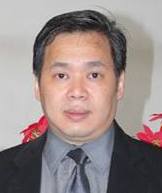
Hanny Setiawan
Hanny Setiawan MBA/MA is a pastor at the Bethany Church of Solo Baru in of Surakarta, Indonesia. He holds an MBA in Management Information System degree from Bentley University in Boston and is currently working on MA in Community Development at Gordon Conwell Theological Seminar. He is currently fathering a national-wide youth movement and developing Indonesia Reformed Charismatic Institute and Praying Indonesia Movement. His strategic vision is for a new generation of revivalist in Indonesia in all spheres of ministry: business, media, art, politics and economy.
Marius Lombaard is an undergraduate student of theology at the University of South Africa (UNISA). He is married and aspires to major in New Testament studies. He also had extensive exposure to all the major mainline church denominations in South Africa, and speaks with considerable insight as to the ethos of all these denominations.
Baptism in the Fire of Persecutions as the Final Stand for Holiness
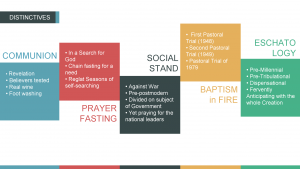 Historical and Doctrinal Formation of Holiness Teachings and Praxis among Bulgarian Pentecostals (Research presentation prepared for the Society of Pentecostal Studies, Seattle, 2013 – Lakeland, 2015, thesis in partial fulfillment of the degree of D. Phil., Trinity College)
Historical and Doctrinal Formation of Holiness Teachings and Praxis among Bulgarian Pentecostals (Research presentation prepared for the Society of Pentecostal Studies, Seattle, 2013 – Lakeland, 2015, thesis in partial fulfillment of the degree of D. Phil., Trinity College)
The eschatology of the first Pentecostals in Bulgaria was definitely Premillennial, built around the suffering of the church and the coming final deliverance. “Christ shall return in person,” not just in spirit or presence, read the Pentecostal Union’s first Declaration of Faith. But first they were to be tested in a baptism of fire…
After the 1923 unrest in Bulgaria, Pentecostal missionary Dionesy Zaplishny was abducted, severely beaten and held in a well for a week. His health was never the same and he passed away at an early age in 1935. But this was only the beginning of the persecution upcoming with the Communist Regime.
Bulgaria’s Pentecostal movement entered the oppression period split and divided. The westernized denominational structure, which Nikoloff proposed in 1928, never fit the existing Pentecostal churches and was unable to unite them as a whole. When the communists took over in 1944 they used the existing church defragmentation to infiltrate and manipulate the congregations. Thus, the eschatological suffering of the church experienced its prime under Communist dictatorship.
In 1948-49 two consecutive trials targeted evangelical pastors effectively sentenced fifteen of them and virtually beheading the evangelical movement in Bulgaria from its leadership. When a new generation of leaders became involved some 30 years later, another similar trial imprisoned six of them in 1979. The evangelical churches were left without any leaders, except the ones placed under the control of the communist state. The congregations that refused to accept them were outlawed and marginalized with no contact with the outside world. But through all these trials and tribulations, the believers learned how to survive the persecution and overcame…
“Strange Fire”? Not in a Global Pentecostal Context of Ministry
A Biblical and experiential panel response to John MacArthur’s “Strange Fire” from an international Pentecostal point of view Strange Fire
Dony K. Donev with Dennis Balcombe, Hanny Setiawan and Marius Lombaard

John MacArthur, Strange Fire: The Danger of Offending the Holy Spirit with Counterfeit Worship (Nelson Books, 2013).
Almost one year ago, internationally known author John MacArthur began campaigning for his new book Strange Fire. With lots of material written beforehand by many who had not even read the book, the actual premiere was at a conference with the same name, not without some scandal to help its wide popularization. But scandal was hardly needed when the book classified most (if not all) Charismatics around the world as heretics. Тhe bottom line for MacArthur’s work was deconstruction modern day Charismatic theology and exposing it as unbiblical.
Do Pentecostal churches really offer a “strange fire” as MacArthur proposes? Could charismatic extremes practiced by some be evident in all Charismatic churches and classical Pentecostal denominations? And is it possible to declare a world wide movement of half a billion strong as heretical by observing random examples among less than 3% (three percent) of its representatives residing in North America?
The premise of this ad hominem attack is surprising, when even in Pentecostal scholarly circles we have long debated some Charismatic praxis as wrong and destructive to the movement as a whole. So, when an outsider to Pentecostalism as MacArthur jumps in and claims all Pentecostals are bad because some Charismatics have been found in the wrong, the normal response is simply to disagree. Especially when these extremes do not concern Pentecostalism globally, but as MacArthur himself admits, are defined to a North American context of ministry and even more strict and limited Charismatic circle of neo-Pentecostalism.
The purpose of this article, therefore, is to present the view of Classic Pentecostals, as deferred from the variety non-Pentecostal Charismatics. And to discuss MacArthur’s assumptions in an international Pentecostal context, though Strange Fire refuses to view Pentecostalism as the global power it has become. Perhaps, the very weakness of any theological work that seeks international recognition, but fortifies its argument only within the perimeter of westernized theology. To provoke an even deeper discussion, the study explores five of the major arguments of Strange Fire within the ministry context of Pentecostals from Eastern Europe, Africa and Asia.
Apostolic Relevance or a New Apostolic Reformation?
Admittedly, MacArthur strongest point within his attack on Pentecostals is outlining Peter Wagner’s New Apostolic Reformation movement. And even quoting Vinson Synan, who was invited to join the network for $69 a month, but declined with the response, “I could not afford to be an apostle.” But how concerned is the larger Pentecostal world about this apostolic movement? And how important is NAR in global Pentecostalism today?
Hanny Setiawan of the Bethany Church of Solo Baru, Indonesia states:
I personally know NARs and follow Wagner’s thought but, I am not sure that Indonesian charismatic churches are aware of Wagner’s thought. Indonesian charismatic churches are not strategically structured and concepted like Wagner’s way of thinking. I recognize myself has an apostolic function even though I don’t call myself an apostle (neither my community). Wagner’s book and other related books have helped me to know my calling deeper. And because I understand what my calling is, I can perform my apostolic function more efficiently.
Lifetime missionary to China, Dennis Balcombe also responds:
This New Apostolic Reformation is simply an American invention and organization by Peter Wagner and some who follow him. It has absolutely no relevance to the church in China, and I suspect in most other parts of the world. I live in the Hong Kong SAR and have not heard of anyone who is actually a part of this or calls himself an apostle. It is almost unheard of in mainland China where the church situation is much different. [Even] In the past in mainland China the church seldom used any type of titles for ministers other than ‘Servant of the Lord” or “Handmaiden of the Lord.” One reason was that for much of the past 65 years in Communist China, the house church (which constitutes the majority of Protestant Christians in China) has been illegal and persecuted to various degrees. Anyone having religious titles would possibly be marked by authorities.
Several years Peter Wagner and Chuck Pierce came to Hong Kong, and at the invitation of a local pastor, Rev. David Wang, invited many mainland house church leaders to attend an ‘apostolic ordination meeting’. They ordained several as apostles of various areas. However none of them were main leaders, and when they went back to their cities and told other pastors of the meeting, almost without exception the others totally rejected this.
Coming from my own background as a minister in post-Communist Bulgaria, I can confirm much similar experience with NAR in Eastern Europe. That there are true Pentecostal apostles is an undisputable fact; especially, when we speak of men and women who have started multiple churches and sometimes whole movements. At the same time, questioning the authenticity of “apostles who never do anything” (terminology by C.Buettel/J.Johnson) has been an open praxis in modern day Pentecostalism ever since its conception at the Azusa Street Revival.
Prosperity and Poverty in the Context of Global Pentecostalism
Next to apostles and “rock star” ministers, Strange Fire addresses the prosperity movement. Yet, the global Pentecostal church is hardly a materially prosperous one. On the contrary, overwhelming evidence from around the world repeatedly proves that poverty is an ever present factor in global Pentecostalism. So, exactly how important is the prosperity teaching in Pentecostal churches around the world?
Pastor Balcombe puts it rightfully:
This doctrine is almost totally foreign to the true Chinese churches in most parts of Asia, especially Hong Kong and China. [Prosperity] is being preached and practiced to various degrees of success mostly only in some more prosperous Asian nations. We would immediately think of Singapore and the mega-church of Joseph Prince which is also well known for the teaching we call antinomianism. Though this church is large and considered to be Charismatic, we would not identify it as a solid Pentecostal/Evangelical church.
Marius Lombaard of the University of South Africa agrees that:
The Pentecostal church I was part of was very opposed to prosperity teaching. It distinguished itself from other Pentecostals and Charismatics. Members at the time ranged from ordinary poor, to middle class people and no body was above middle class.
Hanny Setiawan affirms the above by saying:
Bill Hamon’s book the eternal church has helped me map the charismatic churches in Indonesia. With the Full Gospel movement (more traditional Pentecostal churches), Indonesian Pentecostal were “updated” into charismatic teaching in 1998 during the Asian turmoil. That’s when the prosperity teaching came into various emerging mega churches.
And then he wholeheartedly declares:
As part of both Pentecostal and charismatic churches I strongly state that I hate prosperity teaching. And yes, we have issue upon this teaching.
For working with the poor, I have to be honest that what I am doing is not typically with charismatic/prophetic churches in Indonesia. But few churches have already started doing work for wide-nation program in the social sector.
Even in my own European descent, I have to agree with these views when applied into global Pentecostal context. In my own dissertation a decade ago I wrote of Bulgarian churches that planted in North American context of ministry.
The fifteen years of economical crises, political disorder and the high rate of unemployment in Bulgaria have not helped the church plan for the future or find alternative ways for support. Thus, the Bulgarian Protestant Church remains a poor church. Moving to a land of greater prosperity (viz., North America), however, has not brought much improvement to the situation. The financial blessings enjoyed by individual Bulgarian believers are not always reflected in the financial ability of the church. Even within the American context, the Bulgarian church remains a beggar in a land of plenty (Bulgarian Churches in North America, 2004).
Prosperity is a mindset, a worldview of its own. And how it is measured remains entirely cultural. But one thing is for sure, it is not the worldview of the entire global church, regardless if they are Pentecostal, Baptist or even Catholic. In other words, no one movement can be holistically and globally prosperous. And when ministering among the poorest of the poor, the Bible does remind of Jesus’ teachings whereas our personal prosperity cannot remain self-centered. It must be applied toward the needs of the others as well. Or we are in the danger of Laodicea—to be rich, yet poor in the site of God.
Miracles shall cease? Not according to the Bible
From his personally-modified cessationist theology, MacArthur insists that miracles and healings are not consistent with the view of the church in the 21st century. This is hardly true for all Pentecostal groups around the world. Many among them have come to know Christ and exist as a church through no other way but by a miracle. And they are not hesitant to testify of that. If asked, virtually all Pentecostals can very vividly describe the last occurrence of miracle and demonstration of spiritual gifts they’ve witnessed recently in their own spiritual walk with specific details (date, place and event).
Hanny Setiawan responds:
I can boldly say that MacArthur is wrong in this statement. In fact, I am working on writing all the miracles happened to us in a website. We believe miracles are usual in Indonesia. Many Indonesians are uneducated and miracles are expected. Prophetic dreams, directions, visions, are widely experienced. In my ministry network, in fact, we move heavily in a divine direction. We teach the difference between Titanic Teaching and Noah’s Ark. What MacArthur suggests is to build ministry like building the Titanic, all brain and logic. We don’t buy into that! We build our ministry based on total obedience to divine direction. Sometimes it’s illogical and insane, but it’s always biblical. Illogical doesn’t mean un-biblical.
Dennis Balcombe also responds:
This is absolutely not true in most of Asia, especially in China. I have been travelling throughout the world for the past 45 years, and I would say this is not true of most of the part of the world we identify as ‘third-world nations’. This would include S. E. Asian nations, especially Indonesia, India, most of Africa and South America. I have been working extensively in mainland China since 1978, and have spoken to thousands of individual Christians and have deeply researched the history of Christianity and revival going back over 100 years. Almost without exception people tell me they became Christians due to some miracle they experienced, saw or heard about.
While in China not every Christian believes in or has experienced speaking in tongues, you would have to travel far and wide to find a Christian who doesn’t believe that miracles are for today and take place in the church today. It would take volumes to write in detail all the miracles I have either witnessed or heard about in China and other nations I have travelled, and this year Charisma Publishers will publish a new book I just wrote, China’s Opening Door with a few chapters dedicated to the miracles in China.
Like the churches in China today, the church under the Communism Regime could not exist without miracles. The fall of the Berlin wall was a miracle of its own. This alone is proof for supernatural signs at an international scale.
There is a video recorded from that time where a woman born blind who received her vision during a Bulgarian Church of God service in Sofia, Bulgaria. It was shot while Lee University’s Campus Choir lead by Dr. David Horton visited Bulgaria. While people are praising God for the miracle and the choir is singing, the camera drifts in the crowd to record a bearded man dressed in pure white standing taller than anyone else in the auditorium. His appearance is so amazingly different from the rest of the congregation that one immediately thinks of Jesus standing in the crowd. The video was lab tested upon returning to the States and was proven authentic. Yet, not a single person remembered seeing that man during the service.
Prophecy shall cease, but only where charity has failed
The argument of secession of the gifts of the Spirit is presented mainly in ch. 12 of MacArthur’s “Strange Fire.” It represents the heart of his argument against Pentecostalism through the years. This argument has been theologically reputed and practically invalid. But most of all, it is simply not true experientially as prophetic messages in or without tongues are still evident in multitude of Pentecostal churches around the world today.
Hanny Setiawan is certain that:
Again, MacArthur is very wrong. Without the work of the Spirit, Indonesian churches cannot survive. We live in the biggest Muslim nation in the world. And prophetically, we get the message that Indonesia is the last puzzle of the world. I share this to show how prophetic is integrated in our strategic ministry policy. Now we work toward 34 provinces by faith through the Holy Spirit without money backup. How could MacArthur explains this?
Marius Lombaard underlines the social aspect of the prophetic church by saying:
In my country, Christianity is too diverse to give any idea what the “majority” believes. Many may still believe in prophecy, but they would nuance their views of it differently. Prophecy can be wrongly caricatured. My beliefs about prophecy is that it is a function of the church to speak prophetically about contemporary cultural and social issues, rather than individuals being “filled with the spirit” and randomly telling people what they believe God to be telling them. I do think when prophecy takes my latter description of being “filled” with the spirit and randomly speaking things one believes God to be telling you, that there is a high risk of it being false.
Dennis Balcombe also admits as a Pentecostal that:
On rare occasions there are “prophecies” that violate the Word of God, are judgmental and condemning, and are spoken with malice and evil intent. We will always immediately deal with such prophecies, ask the speaker to be quiet, and let the congregation know that the “prophecy” was wrong.
Thus, prophecy is always judged by the written Word of God, the witness of the individual and the pastor or spiritual head of the one receiving the prophecy is usually present, or the words are given to him to follow up on. Over the years, we have found almost all of these prophecies to be accurate and are amazing inasmuch many of these giving the prophecies know nothing about the individuals they are speaking to. We see a powerful confirmation of the word of knowledge.
However, a small percentage seems to have ‘missed the mark’ and were not suitable or applicable to the individual. We would tell the person if there is no confirmation to ignore such ‘prophecies’ and we would point this out to the one giving the prophecy. If it happened often, we would not allow that person to continue to operate in this gift. There are some individuals, almost always from the USA or other Western nations, who will from time to time give predictive prophecies relating to major world events, world leaders, earthquakes and other natural judgments, etc. We usually only read about these prophecies in various public meetings, but not in our local church.
All through the Bible, persecution of the community of God is overcome mainly through prophetic presence and power. For this reason my masters’ thesis Pentecostal Primitivism argued that a persecuted movement, as Pentecostals have been for many years and in many places around the world, cannot survive without miracles within the prophetic realm:
Since a social movement that purposes liberation of the individual is always rejected by the present political and economic powers, Pentecostalism arises and develops in the midst of constant persecution and resistance. The constantly present struggle against evil, wrong and unrighteousness is the power that moves Pentecostalism to its final purposes. Once persecution disappears, Pentecostalism loses its original power and turns to a nominal religious organization, which continues to function and exist, however, outside the boundaries of its original purpose.
The theology of the Persecuted Church is a theology of martyrdom. The context of persecution is a constantly present formational factor in Pentecostalism worldwide, and as such it is a universal characteristic of the movement. Only as such can Pentecostalism act in its God-given prophetic authority. In the same prophetic power in which John prophesies of the coming Baptiser with the Holy Spirit, the Early Pentecostals preached about the Fire from Heaven prior to the actual experience of the Holy Spirit baptism. The message of the movement then becomes a prophetic utterance under which the movement grows and develops to the point of fulfillment of the promise given by God.
Spiritual Salvation: Both Prophetic and Supernatural
How important are the above issues to the salvation of eternal human souls if both prophetic and supernatural are removed from within the church? Should not salvation be the central focus of the church of the 21st century around the world rather than other seemingly important theological quarrels? And isn’t Biblical salvation still both supernatural and prophetic?
“Salvation is central of our ministry. It will always be the most important thing,” Hanny Setiawan responds. “But that’s only the beginning of discipleship. Personal piety teaching will merely cause egoistic salvation. Being and Doing are two things that have to happen together. Being like Christ, and doing Christ’s work. MacArthur’s concerns are well-taken, but he has to listen to our concern as well. Cessationist teaching has produced arrogant and humanistic Christianity. Total dependency to written words has to go hand in hand with total dependency to the living words. Holy Spirit and Bible are the two variables we need. Jesus is both natural and supernatural, so why can’t we believe that we are naturally supernatural”?
Marius Lombaard explains that:
Salvation is not dependent on a Gnostic view that one must hold to all the correct beliefs or doctrines, but on trusting that God will raise the dead at his second coming just like he raised Jesus from the grave. Nevertheless, I do think charismatic gifts are a practical matter that deserves attention in light of the prosperity and “word of faith” movement. I think there is a lot of unwarranted strange things happening in the charismatic churches in my country, but I do not think they are a majority, and they are not all equally practicing the stranger charismatic things.
Dennis Balcombe continues:
Preaching the “Full Gospel” with signs following, healing the sick, leading believers to be baptized in the Holy Spirit is very much a part of the ministry of the church today, and will result in the salvation of many souls. But the preaching of the Gospel will always focus on Christ, His Word, the cross and the salvation of the lost. Gifts of the Holy Spirit, healing of the sick, the ministry of prophets and apostles, God’s blessing on those who believe in Him (the good side of the prosperity Gospel) are part of the inner working of the Gospel. Our destination is the evangelization of the lost, the preaching of the Gospel of Christ to the nations, and the salvation of souls. The observations of John MacArthur in Strange Fire of the over-emphasis on gifts, ministries, anointing, prophecy, tongues, healing and other parts of the inner working of the Gospel to the neglect of preaching the Word and Christ should be a wake-up call to all of us.
***
As a fifth generation Bulgarian Pentecostal, which is somewhat rare in a post-Communist context, my last words to the cessationism of Strange Fire are the same I wrote on the back of a final exam at a Bible Belt Baptist College some 20 years ago:
My grandmother was baptized with the Holy Ghost at an all-night cottage prayer meeting at age six in a small southern town in Bulgaria in 1926; as after God healed her from tuberculosis at the same prayer meeting two years earlier. My mother was baptized with the Holy Spirit and speaking in tongues accompanied with the gift of prophecy at age 12. And then in 1990, God baptized me with the Holy Spirit, among many others at the first national gathering of Pentecostals in Bulgaria after the fall of the Berlin Wall.
After preaching for 25 years the Gospel of Salvation and Pentecost with the Biblical gifts of the Spirit, and having dedicated over ten years to higher education and three graduate degrees, with a scholarly certainty of my Biblical Pentecostal experience I can declare: “You’ve come to tell me there’s no Pentecost for today a bit too late!”
PR
Dennis Balcombe, originally from California, USA, has served as a missionary in Hong Kong and China for the past 45 years since 1969. He was one of the first missionaries to enter China when it opened in 1978, and much of his time is in China ministering in both official churches and home churches. He is the founder and senior pastor of Revival Christian Church in Hong Kong and serves with his wife Kathy, two children and the family of his daughter, Sharon and Samuel Lau.

Hanny Setiawan
Hanny Setiawan MBA/MA is a pastor at the Bethany Church of Solo Baru in of Surakarta, Indonesia. He holds an MBA in Management Information System degree from Bentley University in Boston and is currently working on MA in Community Development at Gordon Conwell Theological Seminar. He is currently fathering a national-wide youth movement and developing Indonesia Reformed Charismatic Institute and Praying Indonesia Movement. His strategic vision is for a new generation of revivalist in Indonesia in all spheres of ministry: business, media, art, politics and economy.
Marius Lombaard is an undergraduate student of theology at the University of South Africa (UNISA). He is married and aspires to major in New Testament studies. He also had extensive exposure to all the major mainline church denominations in South Africa, and speaks with considerable insight as to the ethos of all these denominations.
Authentic Fire
![AuthenticFire[1]](https://cupandcross.com/wp-content/uploads/2014/05/AuthenticFire1.jpg) Michael Brown’s Authentic Fire, reviewed by John King
Michael Brown’s Authentic Fire, reviewed by John King
Dr. Michael Brown in his work Authentic Fire confronts the misinformation of Pastor John MacArthur’s outspoken zeal against all things charismatic in his book, Strange Fire. While Dr. Brown admits that on some points Dr. MacArthur is right on, his language is radically abusive in tone. And some of Pastor MacArthur’s comments are simply untrue. Brown carefully separates the message from the messenger in addressing charismatic abuse before proceeding to the good stuff: how to burn with authentic fire.
Michael Brown’s Authentic Fire, reviewed by Daniel Snape
Authentic Fire is Dr. Michael Brown’s response to John MacArthur’s book Strange Fire. MacArthur’s Strange Fire launches a scathing attack on the Christian Charismatic Movement and so it comes as no surprise that champions of the charismatic community should launch a defense to MacArthur’s assertions. Dr. Brown leads the charge with a book just shy of 420 pages that seeks to address MacArthur’s main contentions.
Michael Brown’s Authentic Fire, reviewed by Loren Sandford
In my review of John MacArthur’s Strange Fire, I pointed out what I considered to be inexcusable intellectual dishonesty regarding the Charismatic Movement and its contributions to worldwide Christianity. Blanket statements were made with little documentation or knowledge of those within the movement who have made strong intellectual, scholarly and corrective statements. MacArthur singled out rare abuses and presented them as if they characterized the entire movement.
Michael Brown’s Authentic Fire, reviewed by William De Arteaga
Authentic Fire, by Dr. Michael L. Brown, is a masterful answer to the intemperate and angry attack on Charismatic movement and Pentecostalism by John MacArthur in his work, Strange Fire. In the public launch to Strange Fire, MacArthur made clear his utter disdain for the Charismatic Movement in particular.
Highlights from Michael Brown on the Spirit
On Saturday afternoon, May 3rd, 2014, Dr. Michael Brown, spoke at Christian Assembly in Somerville, Massachusetts. He spoke to pastors and ministry leaders about the charismatic work of the Holy Spirit, drawing heavily from his recent book Authentic Fire. This seminar was sponsored by the New England District (www.ifcane.org) of the International Fellowship of Christian Assemblies.
R. T. Kendall: Holy Fire, reviewed by Craig S. Keener
In his nine-page foreword, Jack Hayford rightly titles this “a landmark book.” He also rightly highlights Kendall’s work as irenic (pp. xxi-xxii), offering a notable contrast to some works today. I did not intend my review to prove as long as Pastor Hayford’s foreword, but if readers find my review too long I should mention that its most salient features appear toward the beginning.
The False Doctrine Behind John MacArthur’s Strange Fire, by Eddie Hyatt
In his latest book, Strange Fire, John MacArthur viciously labels the Pentecostal-Charismatic movement as “a false church as dangerous as any cult or heresy that has ever assaulted Christianity.” As I have read and reread his polemic, one thing that becomes clear is that MacArthur’s entire theological outlook is guided and determined by his commitment to the Calvinistic doctrine of cessationism, i.e., the belief that the miraculous gifts of the Holy Spirit were withdrawn from the church after the death of the original apostles of Christ. This, however, is a false doctrine that cannot be substantiated by either Scripture or church history.
5 More Reviews of MacArthur’s “Strange Fire”
Comments Off on 5 More Reviews of MacArthur’s “Strange Fire”
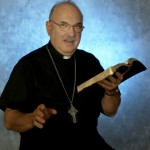 John MacArthur’s Strange Fire as Parody of Jonathan Edwards’ Theology, by William De Arteaga
John MacArthur’s Strange Fire as Parody of Jonathan Edwards’ Theology, by William De Arteaga
The thesis of John MacArthur’s new book, Strange Fire is that Pentecostalism and the Charismatic Movement, are heretical movements that must be rebuked and eliminated from the church. 1 Everything to do with these movements is fraudulent, inauthentic or a misrepresentation of the true Gospel of Jesus Christ. Strange Fire continues his war on the Pentecostals and charismatics begun with his book published twenty years ago… [Read more]
![CHAS_6[1]](http://pneumareview.com/wp-content/uploads/2013/11/CHAS_61.jpg) John MacArthur’s Strange Fire, Reviewed by Charles Carrin
John MacArthur’s Strange Fire, Reviewed by Charles Carrin
You will soon be hearing about two books: Strange Fire by Dr. John MacArthur and Holy Fire by Dr. R.T. Kendall. Dr. Kendall has written only in the emergency to defend Scripture and charismatic Christians from Dr. MacArthur attack. John MacArthur is a man of significant Christian stature. He is the author of more than 150 books, a study Bible, other best-selling material, and a College President. R.T. Kendall is equally a man of great achievement. He holds a PhD. from Oxford University, authored more than 60 books, for twenty-five years was pastor of… [Read more]
![111110ATS-keener002-200x300[1]](http://pneumareview.com/wp-content/uploads/2013/11/111110ATS-keener002-200x3001.jpg) John MacArthur’s Strange Fire, reviewed by Craig S. Keener
John MacArthur’s Strange Fire, reviewed by Craig S. Keener
While offering some very needed points, John MacArthur’s Strange Fire unfortunately extrapolates from those points to an entire “movement.” As I note below, I also believe that MacArthur suppresses some biblical truth on the basis of a postbiblical doctrine, the very offense with which he charges others. Nevertheless, there is much to be learned from his criticisms; he has brought again to our attention some serious errors that charismatic churches must be on their guard against. I start with some agreeable points in the book and then move to points where I believe MacArthur has clearly overstepped the bounds of reason and Christian civility… [Read more]
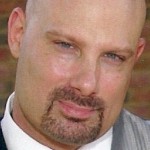 Why I Took Time to Respond to John MacArthur’s Strange Fire
Why I Took Time to Respond to John MacArthur’s Strange Fire
Someone has asked me, “Why waste your time on responding to MacArthur’s writings against the charismatics?” When I was in my 20s, I wrote a critique of John MacArthur’s Charismatic Chaos because a brother in the Lord broke fellowship with me and my friends after reading MacArthur’s book. Jesus said to His disciples, “If they reject you, they’ve rejected me.” So to my mind, restoring a brother to… [Read more]
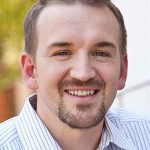
Strange Fire and Churches of Christ
Maybe you’ve noticed that over the past few weeks, there has been a lot of talk around charismatic vs. not charismatic protestant Christians. Some people held a conference, and John MacArthur wrote a book about it. Mark Driscoll even showed up at the conference and started giving away his newest book and just confused everyone. But what caught my eye is what these non-Charismatics called the conference. They called it, “Strange Fire” Which may not mean much to you, but… [Read more]
5 Reviews of MacArthur’s “Strange Fire”
Comments Off on 5 Reviews of MacArthur’s “Strange Fire”
![cropped-Synan[1]](https://cupandcross.com/wp-content/uploads/2013/11/cropped-Synan1.jpg) John MacArthur Strikes Again with Strange Fire
John MacArthur Strikes Again with Strange Fire
By Vinson Synan
John MacArthur, the Calvinist, Fundamentalist, Cessationist preacher from California has done it again. With his newest attack on Pentecostals and Charismatics, Strange Fire, MacArthur, like Don Quixote tilting at windmills, continues his hopeless quest to put an end to the most energetic and fastest growing group of Christians in the world. MacArthur never quits. This is his third book on the subject, and perhaps his last. [Read more]
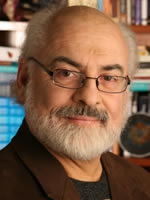 Frank Macchia on the Gifts of God to the Church
Frank Macchia on the Gifts of God to the Church
In the context of this hoopla over cessationism, it might be interesting to see how the issue of spiritual gifts was dealt with in the first round of international talks between the World Alliance of Reformed Churches and the Pentecostals (of which I was a participant). We agreed together that all of the gifts from the New Testament have value today, but that both global church families tended to favor different lists of gifts from the New Testament. In response, we affirmed that no single list of gifts is to be held up as all determinative for judging the quality of a church’s spirituality and that both sides must expand its horizonsby embracing the value of the gifts cherished by the other side… [Read more]
John MacArthur’s Strange Fire, Reviewed by R. Loren Sandford 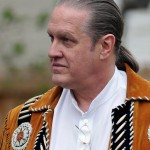
Strange Fire by John MacArthur is basically an attack on anything and everything related to the Charismatic Movement and the various movements descended from it, as if the whole of it were composed of one monolithic set of doctrines and practices that all of us espouse. It invalidates anything that smacks of the supernatural or of emotion freely expressed in God’s presence. MacArthur pours his vitriol – and I mean vitriol – through the filter of his own prejudices and theological presuppositions in a way that blinds… [Read more]
![ruthven_small[1]](http://pneumareview.com/wp-content/uploads/2013/10/ruthven_small1.jpg) John MacArthur’s Strange Fire, A Brief Biblical Response by Jon Ruthven
John MacArthur’s Strange Fire, A Brief Biblical Response by Jon Ruthven
As we shall see, John MacArthur’s abhorrence of “further revelation” via prophecy and related spiritual gifts derives, not from scripture, but from the frustration of Calvinists under Oliver Cromwell (1599-1658) of watching so many of their members defect to the Quakers, the crazy charismatics of the time. People were falling down, making a lot of noise and encountering Jesus in visions, prophecies, and healings. Sound familiar? Calvinist scholastics responded to this outrage with the Westminster Confession of Faith (WCF)—often now regarded as the gold standard…
[Read more]
![hyatt_1-140x205[1]](http://pneumareview.com/wp-content/uploads/2013/10/hyatt_1-140x2051.gif) John MacArthur’s Strange Fire, Reviewed by Eddie L. Hyatt
John MacArthur’s Strange Fire, Reviewed by Eddie L. Hyatt
As a life-long Pentecostal-Charismatic, I recommend that every Pentecostal-Charismatic leader read Strange Fire by John MacArthur. I say this because we need to see how the bizarre “spiritual” behavior and doctrinal extremes by some in our movement are viewed by those on the outside and are used to whitewash the entire movement. We have done a very poor job of addressing these problems from within, so I do not doubt that God has raised up a voice that is fundamentally opposed to our movement to address these extremes. If God could use a pagan Babylonian king to discipline his people Israel for their sins(Jeremiah 25:8-11), could he not use a merciless fundamentalist preacher… [Read more]



